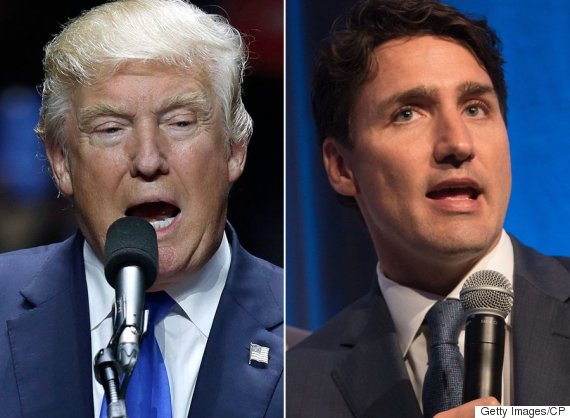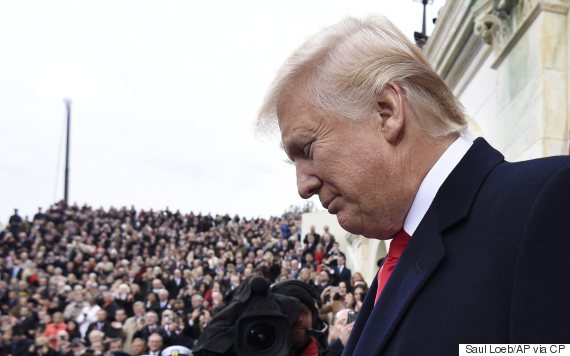As the world braces for the unpredictable reality of President Donald Trump, a new poll suggests Americans still see Canada as their top global ally.
It’s a much different picture for the United States’ neighbour to the south.
![donald trump]() Donald Trump speaks at a news conference in New York on Jan. 11. (Photo: Evan Vucci/AP via CP)
Donald Trump speaks at a news conference in New York on Jan. 11. (Photo: Evan Vucci/AP via CP)
According to a survey of 1,500 Americans
released Thursday by the Angus Reid Institute, eight-in-10 want Trump to approach Canada as a “valued partner and ally” (57 per cent) or “on friendly terms” (23 per cent).
The numbers suggest Canada has a better reputation among Americans than the United Kingdom, Australia, Italy, France, and Germany.
![trump poll]()
Though much has been made of the contrasts between Trump and Prime Minister Justin Trudeau, it turns out supporters of the brash Republican may hold a slightly more positive view of Canada than those who voted for Democrat Hillary Clinton.
Eighty-six per cent of Trump supporters told the firm they want his administration to be on “friendly” terms with its northern ally, compared to 81 per cent of Clinton supporters who said the same.
But it seems Americans are looking to Mexico with more caution. Just 17 per cent said the new U.S. administration should treat Mexico as a valued partner, though 33 per cent want the two nations on friendly terms. Another eight per cent called Mexico a “potential threat to U.S. interests.”
Less than half of Trump voters (44 per cent) want the U.S. to approach Mexico on “friendly” terms.
![trump poll]()
Trump famously began his presidential campaign by charging that Mexico was allowing criminals and rapists to cross the border into the United States. He pledged to build a southern border wall and deport millions of undocumented Mexican immigrants.
Since his election victory in November, Trump has
threatened to punish American companies considering a move to Mexico. He has also vowed to slap a so-called “border tax” on cars built in the country.
While the threat of tariffs has also
sparked concerns in Canada, Trump’s promise to reopen the North American Free Trade Agreement (NAFTA) has been a focal point. On this issue, Trump voters expect action.
More than 60 per cent of Trump supporters surveyed want the new administration to either “decrease the U.S. commitment” to the pact (32 per cent) or take the U.S. out of the arrangement altogether (31 per cent).
![trump poll]()
The numbers also point to a contrasting view of the trade relationships between the U.S. and its NAFTA partners. While roughly 77 per cent of Americans told the Angus Reid Institute that trade with Canada benefits both countries equally, just 35 per cent felt the same about trade with Mexico.
And while 45 per cent said trade with Mexico “benefits the other country more,” only 11 per cent felt the same way about Canada.
Canada is America’s second-largest trading partner behind China, and Mexico is third.
![chrystia freeland justin trudeau]() Chrystia Freeland speaks on Parliament Hill in January 2017. (Photo: CP)
Chrystia Freeland speaks on Parliament Hill in January 2017. (Photo: CP)
Trudeau has already offered to sit down with Trump to discuss NAFTA. The move sparked criticism from interim Conservative Leader Rona Ambrose, who alleged the incoming president’s anti-NAFTA rhetoric was always about Mexico, not Canada.
But The Canadian Press debunked that claim in November by pointing to occasions Trump also
singled out Canada on the campaign trail.
"We lose with Canada — big-league. Tremendous, tremendous trade deficits with Canada,” Trump told a rally in Rochester, N.Y. last year.
Trudeau’s cabinet shuffle this month was seen to have been done in preparation for Trump’s elevation to the White House. The prime minister notably
promoted Chrystia Freeland to foreign affairs from international trade, but said she will continue to manage the Canada-U.S. trade file.
Trump takes ‘trade and jobs lens’ to foreign affairs: PM
Freeland, a former New York-based business journalist, won praise for sealing the Canada-European free trade agreement last year.
Trudeau told reporters that Freeland was the ideal person to represent Canada to the U.S. during a time of change.
"One of the things we've seen from president-elect Trump is that he very much takes a trade and job lens to his engagements with this world in international diplomacy,'' he said at the time.
The online poll was conducted between Jan. 13-17 among a representative, randomized sample of 1,503 American adults. The firm says that, for comparison purposes, a “probability sample of this size” would have a margin of error of 2.5 percentage points, 19 times out of 20.
With a file from The Canadian Press
Like Us On Facebook -- This feed and its contents are the property of The Huffington Post, and use is subject to our terms. It may be used for personal consumption, but may not be distributed on a website.
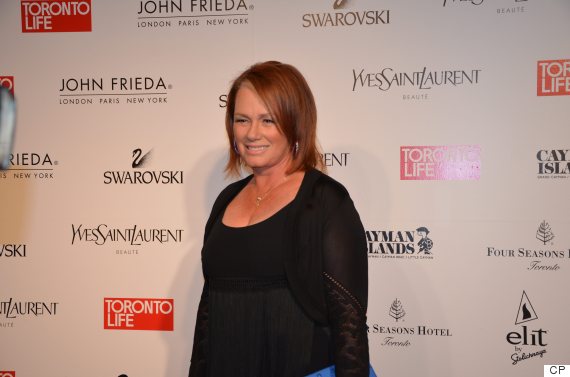
 The footage, which first surfaced on the website TMZ, shows the distressed dog fighting to stay out of the water by repeatedly clawing at the edge of the pool. (Photo: TMZ screengrab)
The footage, which first surfaced on the website TMZ, shows the distressed dog fighting to stay out of the water by repeatedly clawing at the edge of the pool. (Photo: TMZ screengrab) Josh Gad attends the 2016 Children's Hospital Los Angeles 'Once Upon a Time' Gala at L.A. Live Event Deck on October 15, 2016. (Photo: Getty Images)
Josh Gad attends the 2016 Children's Hospital Los Angeles 'Once Upon a Time' Gala at L.A. Live Event Deck on October 15, 2016. (Photo: Getty Images)

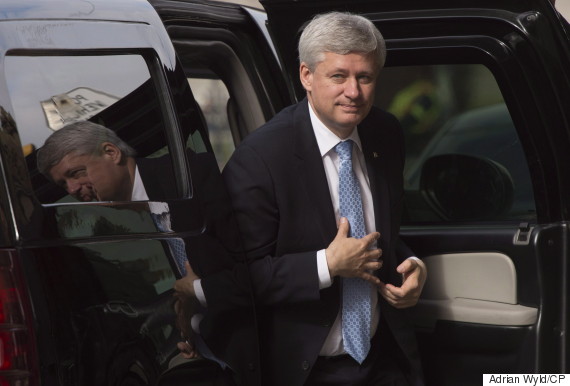




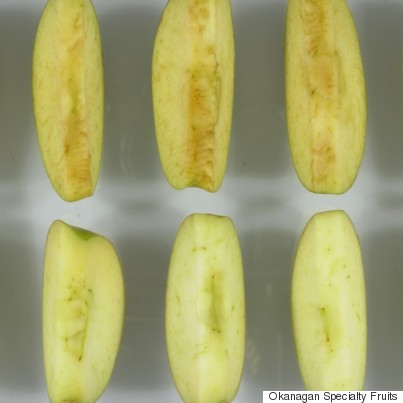

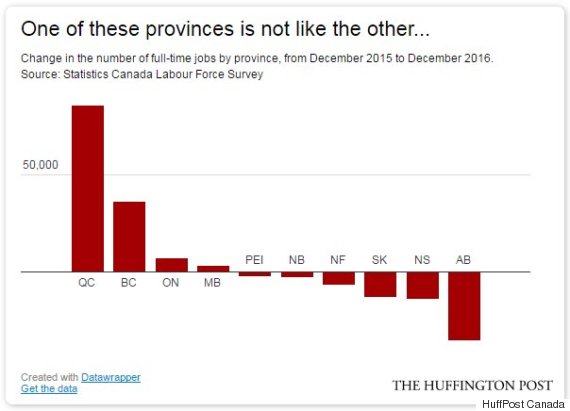








 Chrystia Freeland speaks on Parliament Hill in January 2017. (Photo: CP)
Chrystia Freeland speaks on Parliament Hill in January 2017. (Photo: CP)



